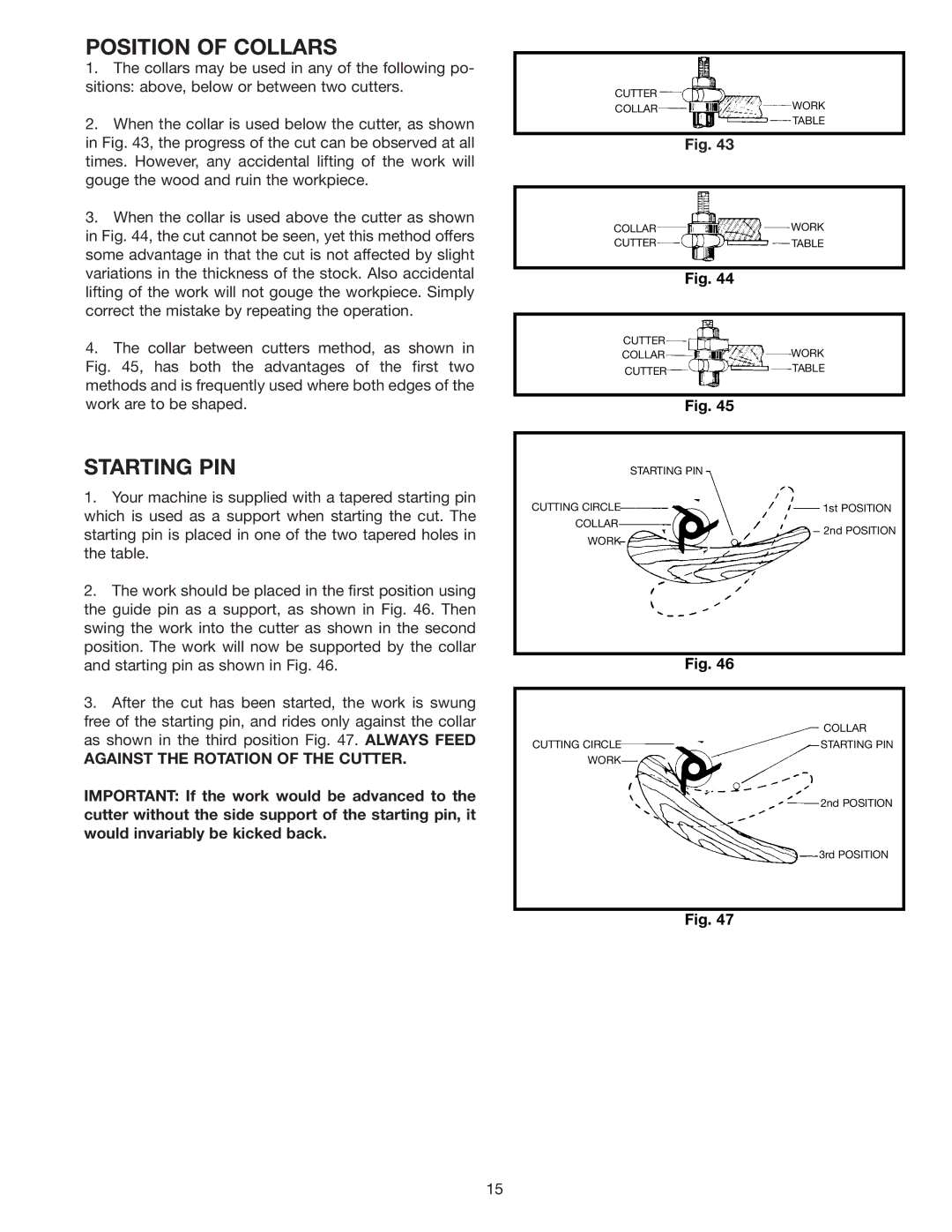
POSITION OF COLLARS
1.The collars may be used in any of the following po- sitions: above, below or between two cutters.
2.When the collar is used below the cutter, as shown in Fig. 43, the progress of the cut can be observed at all times. However, any accidental lifting of the work will gouge the wood and ruin the workpiece.
3.When the collar is used above the cutter as shown in Fig. 44, the cut cannot be seen, yet this method offers some advantage in that the cut is not affected by slight variations in the thickness of the stock. Also accidental lifting of the work will not gouge the workpiece. Simply correct the mistake by repeating the operation.
4.The collar between cutters method, as shown in Fig. 45, has both the advantages of the first two methods and is frequently used where both edges of the work are to be shaped.
STARTING PIN
1.Your machine is supplied with a tapered starting pin which is used as a support when starting the cut. The starting pin is placed in one of the two tapered holes in the table.
2.The work should be placed in the first position using the guide pin as a support, as shown in Fig. 46. Then swing the work into the cutter as shown in the second position. The work will now be supported by the collar and starting pin as shown in Fig. 46.
3.After the cut has been started, the work is swung free of the starting pin, and rides only against the collar as shown in the third position Fig. 47. ALWAYS FEED
AGAINST THE ROTATION OF THE CUTTER.
IMPORTANT: If the work would be advanced to the cutter without the side support of the starting pin, it would invariably be kicked back.
CUTTER | WORK |
COLLAR | |
| TABLE |
|
|
| Fig. 43 |
|
|
COLLAR | WORK |
CUTTER | TABLE |
|
|
| Fig. 44 |
|
|
CUTTER |
|
COLLAR | WORK |
CUTTER | TABLE |
|
|
| Fig. 45 | |
|
| |
| STARTING PIN | |
CUTTING CIRCLE | 1st POSITION | |
COLLAR | 2nd POSITION | |
WORK | ||
| ||
|
|
| Fig. 46 |
|
|
| COLLAR |
CUTTING CIRCLE | STARTING PIN |
WORK |
|
| 2nd POSITION |
| 3rd POSITION |
|
|
| Fig. 47 |
15
